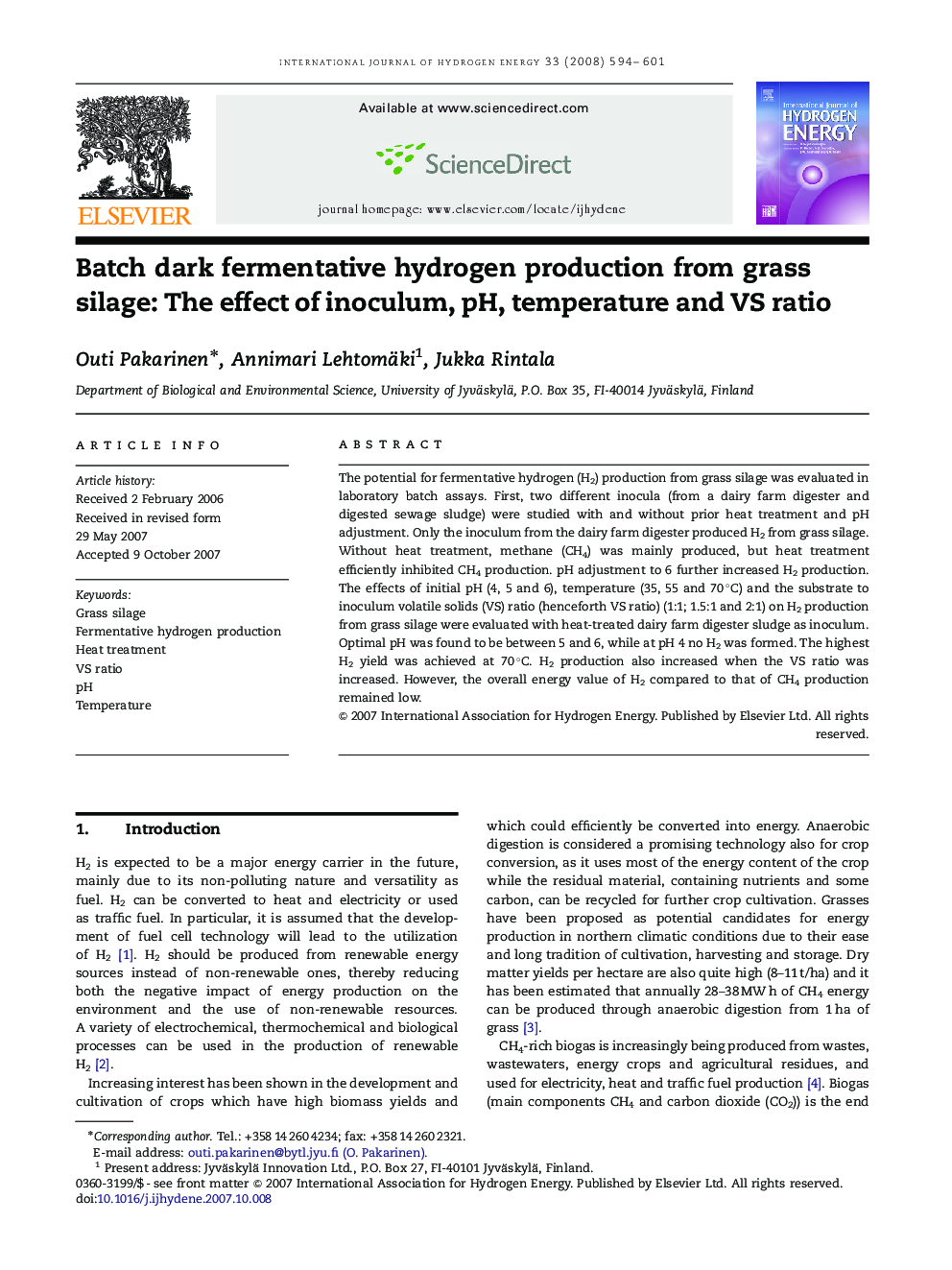| Article ID | Journal | Published Year | Pages | File Type |
|---|---|---|---|---|
| 1279985 | International Journal of Hydrogen Energy | 2008 | 8 Pages |
The potential for fermentative hydrogen (H2) production from grass silage was evaluated in laboratory batch assays. First, two different inocula (from a dairy farm digester and digested sewage sludge) were studied with and without prior heat treatment and pH adjustment. Only the inoculum from the dairy farm digester produced H2 from grass silage. Without heat treatment, methane (CH4) was mainly produced, but heat treatment efficiently inhibited CH4 production. pH adjustment to 6 further increased H2 production. The effects of initial pH (4, 5 and 6), temperature (35, 55 and 70∘C) and the substrate to inoculum volatile solids (VS) ratio (henceforth VS ratio) (1:1; 1.5:1 and 2:1) on H2 production from grass silage were evaluated with heat-treated dairy farm digester sludge as inoculum. Optimal pH was found to be between 5 and 6, while at pH 4 no H2 was formed. The highest H2 yield was achieved at 70∘C. H2 production also increased when the VS ratio was increased. However, the overall energy value of H2 compared to that of CH4 production remained low.
